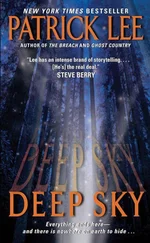Patrick Lee - Ghost Country
Здесь есть возможность читать онлайн «Patrick Lee - Ghost Country» весь текст электронной книги совершенно бесплатно (целиком полную версию без сокращений). В некоторых случаях можно слушать аудио, скачать через торрент в формате fb2 и присутствует краткое содержание. Жанр: Триллер, на английском языке. Описание произведения, (предисловие) а так же отзывы посетителей доступны на портале библиотеки ЛибКат.
- Название:Ghost Country
- Автор:
- Жанр:
- Год:неизвестен
- ISBN:нет данных
- Рейтинг книги:3 / 5. Голосов: 1
-
Избранное:Добавить в избранное
- Отзывы:
-
Ваша оценка:
- 60
- 1
- 2
- 3
- 4
- 5
Ghost Country: краткое содержание, описание и аннотация
Предлагаем к чтению аннотацию, описание, краткое содержание или предисловие (зависит от того, что написал сам автор книги «Ghost Country»). Если вы не нашли необходимую информацию о книге — напишите в комментариях, мы постараемся отыскать её.
Ghost Country — читать онлайн бесплатно полную книгу (весь текст) целиком
Ниже представлен текст книги, разбитый по страницам. Система сохранения места последней прочитанной страницы, позволяет с удобством читать онлайн бесплатно книгу «Ghost Country», без необходимости каждый раз заново искать на чём Вы остановились. Поставьте закладку, и сможете в любой момент перейти на страницу, на которой закончили чтение.
Интервал:
Закладка:
"There's a bit more to it than that," he said. "Audra wasn't interested in using it for submarines. She was looking to use it on people."
None of the vacant expressions in the room changed.
Garner crossed to the big chair before his desk. He swiveled it to face the coffee table and sank into it.
"We started working on ELF in the fifties, when it was becoming obvious that subs were going to play a major role in the Cold War. We built the transmitters in remote places. One well-known site in the Upper Peninsula of Michigan. Another in northern Canada, not so well known. The technical hurdles to building the damn things were significant. Consider what they had to do: broadcast in all directions with enough signal strength to reach submarines anywhere in the world, hundreds of feet down in conductive saltwater. It's amazing they worked at all. But even once they did work, there were… other problems. Health effects for personnel that worked and lived close to the transmitters, where the signals were highly concentrated. Cognitive issues in a few rare cases, but the most common problems by far were mood disruptions. Conditions that mimicked the symptoms of bipolar disorder, though with greater severity. Much greater, at times. There were personnel who had to be subdued because they were-for lack of a better word- high. That was how they described it themselves, after the fact. At the other end there was severe depression. There were suicides. Lots of them."
"We still use ELF," Bethany said. "Are those problems still going on?"
Garner shook his head. "They got a handle on it within the first decade. Isolated the causes. At high enough doses, certain wavelengths were trouble. Certain distances from the transmitter were trouble, because of harmonics. Like that. The engineers worked around it." He offered something like a smile, though nothing about it looked happy. "But by then, certain people were thinking about the side effects in very different ways. Thinking about how to enhance them instead of eliminate them. How to control them. How to use them as weapons in their own right."
"Christ," Travis said. But he could already see the obvious appeal of that kind of technology. A tank battle or a naval engagement would be a hell of a lot easier to win if everyone on the other side was suddenly experiencing what felt like a crack high.
"They actually built systems like that?" Paige said.
"They tried. We tried, the Brits tried, Russia tried. Everyone worked out the useful frequencies easily enough. Even found ways to heighten the effects with on-off modulation, or rapid oscillation between frequencies. Scary stuff. Even test subjects, who were well aware of what was happening to them and who were exposed for as little as an hour, had severe reactions. It was a hell of a weapon. Two big problems, though: you couldn't move it, and you couldn't point it." He nodded at Bethany. "Like you said, an ELF transmitter is huge. It's not some dish you can swivel around toward a target. It's a straight-line antenna between leads, dozens of miles apart. You basically just have an effective zone around the signal source. So unless you can talk your enemy into lining up right there, nice and neat, there's not a hell of a lot you can do with a weapon like that. And that was about the extent of it. We kicked it around for a while in the sixties and seventies, looked for ways to make it selective, directional. Probably threw half a billion dollars at it. I'm sure the other guys did the same. But at some point, when you're not seeing any results, you have to cut your losses. There are better things to spend the defense budget on."
He glanced out at the city, shrugged with his eyebrows, looked at the three of them again.
"So you might imagine it got our attention when Audra Nash came to us in 1986 and said she had an idea. A way to broadcast ELF using satellites. If it were almost any other person-much less a student-the committee wouldn't have even taken the meeting. But Miss Nash had some credibility to back up her claim. Her work as a grad student had already influenced the design of next-gen communications satellites. She was smart as hell, and she knew the field better than probably anyone. What she wanted from us was access to the results of all the ELF research over the years, all the raw data from the experiments in directing it, focusing it. We barely had to think about it. First, the data wasn't all that sensitive. It was just a detailed list of all the things that didn't work. And all the countries out there who could possibly want to steal it didn't need to: they already had the same data, based on their own failures. Second, we thought her idea might actually have merit. She was brilliant, she had a track record, and she was coming to this problem with fresh eyes. The concept she had in mind was certainly different enough. We hadn't tried anything like it in all our efforts."
"But how could it work at all?" Bethany said. "Just basic physics should make it impossible for a satellite. A transmitter has to be big enough to handle the wavelengths it generates, and ELF waves are huge. Hundreds of miles long."
Garner nodded. "Her idea was radical. I don't pretend to have understood it in detail, but essentially it was this: ELF waves occur naturally in the Earth's atmosphere. The sun radiates them, and lightning strikes produce them, too. It's all random, of course. All noise, no signal. And even if the frequencies that affect people happen to appear, they're drowned out in the clutter and nothing happens. Audra Nash believed a satellite, transmitting much shorter wavelengths with the right precision, could cancel out certain frequencies of natural ELF over a given target area. Could allow us to pick and choose which frequencies to cancel out… and which to leave intact." He looked at Bethany. "So you're right. A satellite can't broadcast ELF, but in theory it could disrupt it where it naturally occurs, and whittle away everything but the useful ranges. At which point, they would certainly affect people. And it would be precisely targetable. You could influence a few blocks. Or a whole city. Or an area much, much larger than that."
No one said anything. They waited.
"So we gave her the go-ahead," Garner said. "Gave her access to everything we had. She dove into it. Lived and breathed it. She came back before the committee six months later. With a blueprint."
"Did anyone build it?" Paige said.
"Nope."
Paige looked confused. "Why not?"
"Because it was still a long shot. Even with a good blueprint there's trial and error, details to hammer out in the prototype. That can be expensive even if you're modifying a Humvee. For a satellite, tack on a couple zeroes."
"Come on," Travis said. "The hubcaps on the stealth bomber probably cost a million apiece. Since when does the Pentagon get sticker shock?"
Garner smiled. "There's another reason, but it's even less believable." He considered how to frame it. "It's like this. In the early days, when everyone was looking for a straightforward way to weaponize this technology, there was an urgency to figure it out. Get it before the other guys. That makes sense if you think there's some big, obvious solution out there, the kind that everyone will eventually stumble onto. But Audra's idea wasn't like that. It was obscure as hell, based on an overlap of knowledge probably no one but she had. There was a good chance that nobody else in the world would ever come up with it. But they'd be more than happy to copy ours, if we went ahead with the project. You hear people talk about the atomic genie coming out of the bottle in 1945. Like if we didn't let it out, nobody ever would have. It's probably not true. Fission's not exactly an unheard-of concept. But Audra's satellite design was. And we just thought… why do it? Why bring the world into an age defined by something like this? So we sat on it. Locked the design away. Audra understood, though I'm sure she was disappointed. She got out of the design game after that. Went off to Harvard, got her other doctorate in philosophy, got into relief work. Married Finn. I didn't hear about her again until 1995, when that little dustup happened with the paper those two tried to publish."
Читать дальшеИнтервал:
Закладка:
Похожие книги на «Ghost Country»
Представляем Вашему вниманию похожие книги на «Ghost Country» списком для выбора. Мы отобрали схожую по названию и смыслу литературу в надежде предоставить читателям больше вариантов отыскать новые, интересные, ещё непрочитанные произведения.
Обсуждение, отзывы о книге «Ghost Country» и просто собственные мнения читателей. Оставьте ваши комментарии, напишите, что Вы думаете о произведении, его смысле или главных героях. Укажите что конкретно понравилось, а что нет, и почему Вы так считаете.











